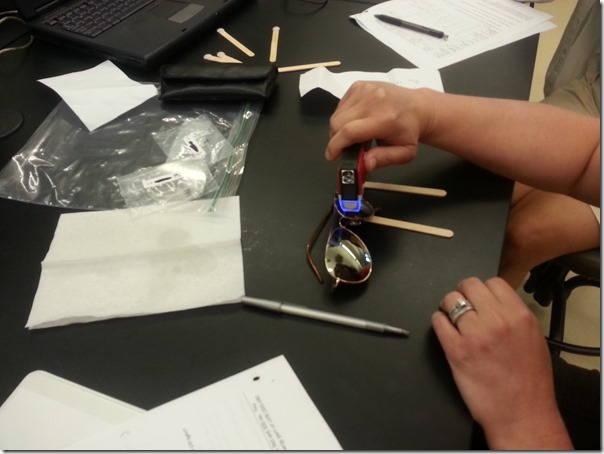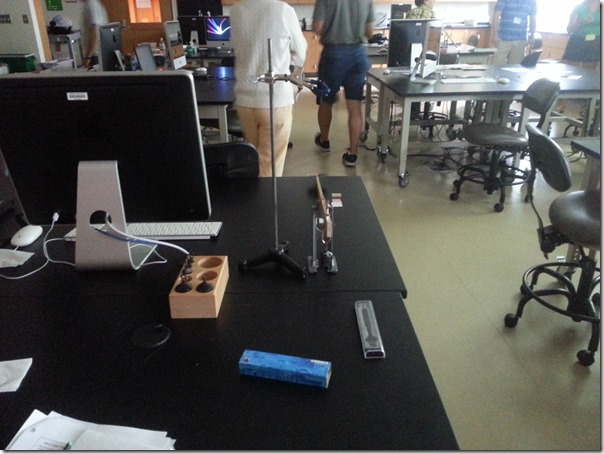Our atomic force microscope protoype
The second day of the UMass Nanotechnology Institute started off with Mort Sternheim talking about why size matters. I currently teach the importance of why size matters when it has to deal with cell size. When we are talking about very small items, they have a larger surface area:volume ratio. I usually teach this lab using phenopthalein agar and sodium hydroxide. Mort provided 3 other activities (which were cheap and awesome) to teach the concept of surface area:volume , using a deck of cards, wood blocks, and a crushed versus whole alka-seltzer tablet in bromo-thymol blue.
The next activity was to about Atomic Force Microscopes. Atomic Force Microscopes use Van der Waals forces to interact with whatever medium you are studying. More about Atomic Force Microscopes can be found in this powerpoint. We then tried to build an atomic force microscope model using common classroom materials. More of the handouts, including teacher’s guides can be found in this repository.
The third activity of the day was by (newly tenured) associate professor Dr. Jenny Ross. Dr. Ross talked about her work with microtubules and biology. She talked specifically about how motor proteins interact with microtubules. It was interesting to hear about this current research, unfortunately, it’s not in the public domain (yet), so I cannot post the materials.
The fourth activity of the day focused on sunscreen and how (mostly) everyone uses too little sunscreen, which is leading to an increased risk of skin cancer.. We ended up completing a series of activities about what types of materials block ultraviolet light. It was interesting to test different materials using UV beads.
Testing UV Beads
Finally, we heard from Dr. Mark Tuominen about the iCons program at UMass Amherst. Had this program existed when I was an undergraduate, I would have loved to be a part of this program. The iCons program is a concentration, and focuses on team collaboration- a skill that all scientists today must have. We are no longer in the days of one person being intelligent and solving a problem. We need groups of people to solve problems. I’ll be posting more about this on my personal blog. For more information about the UMass iCons program, check out the website here.
